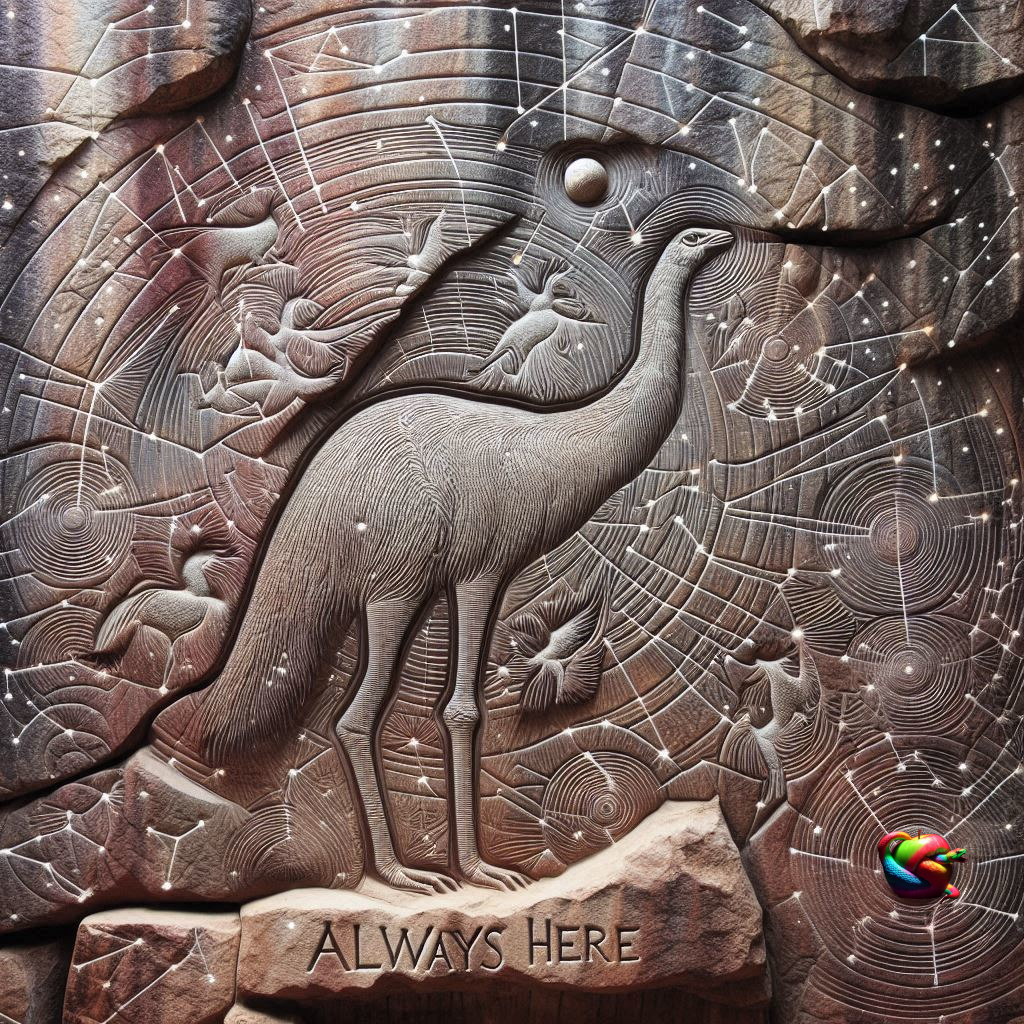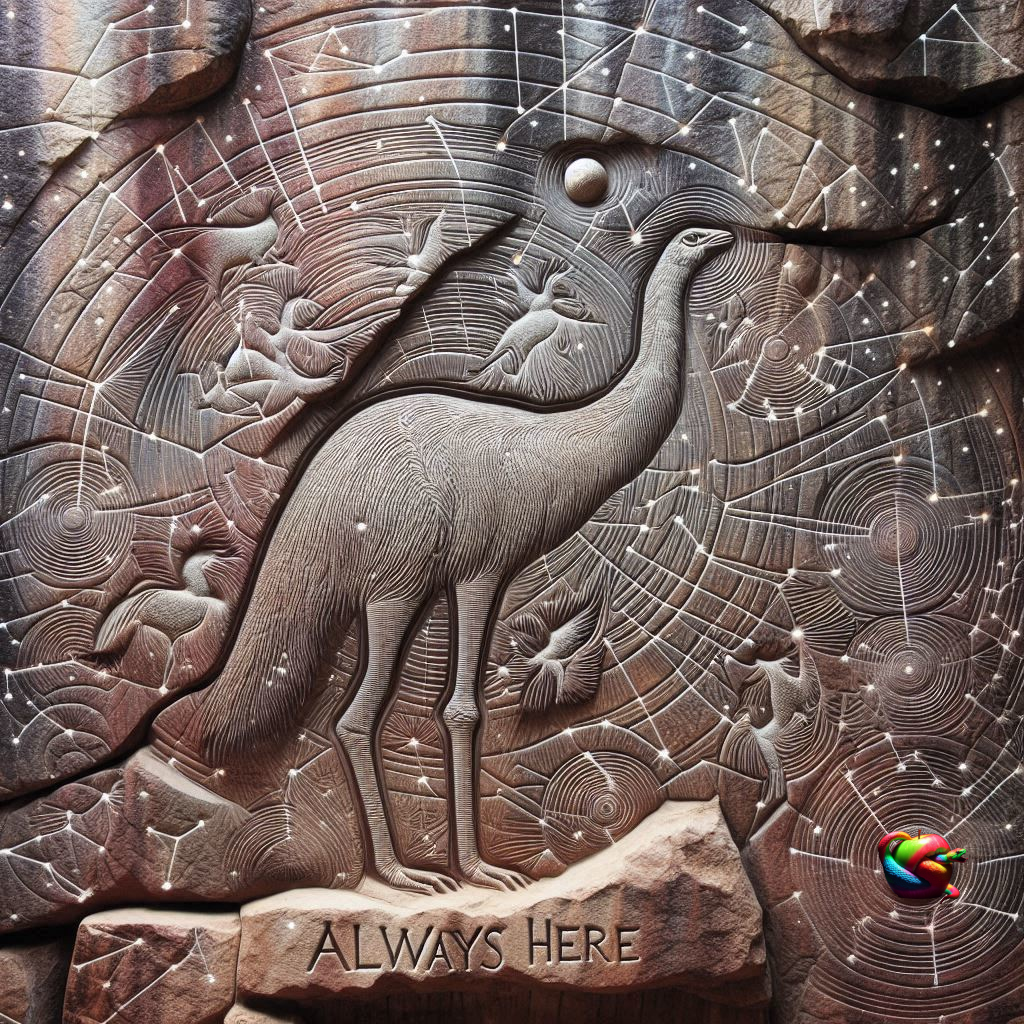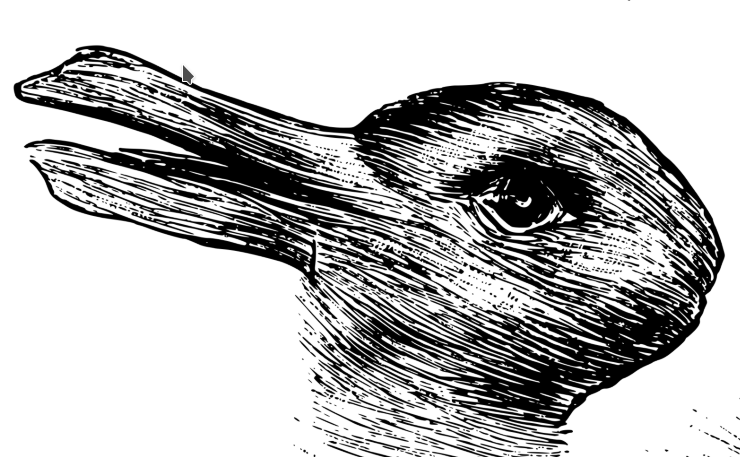
always been here
This starts with reading J. N. Nielsen's various posts on various platforms. I've been reading them mostly via substack. The readings have been leaking through and require acknowlegement.
This particular post is in regard to the word world and it relation to time as mentioned in J. N. Nielsen's Al-Ghazali’s Spiritual Crisis (Philosophical Side Quests: Philosophers of the Islamic Golden Age).
First up I do not care about the spiritual crisis.
And you can look up the context of the 'discourse' where Al-Ghazali is the meat in a sandwich between Avicenna and Averroes.
Anyway this is the bit I am prompted by in J. N. Nielsen's Al-Ghazali’s Spiritual Crisis :
In the second part of this book, which is the critical part for which it is now known, takes aim at twenty propositions that had been defended by philosophers, and which in particular had come to be associated with Avicenna. The first two of these have to do with the eternity or everlasting nature of the world. Al-Ghazali separately treats two claims: That the world has no beginning in time, which he calls the eternity of the world, and that the world has no ending, which he calls the everlasting nature of the world. These two conceptions of the eternity and everlastingness of the world constitute the first two problems that he deals with in The Destruction of the Philosophers.
There are framework questions here that I try not to use, because time is an artefact of movement in tensegrity, or can be mapped like that. I'll also put aside questions of immanence.
(I do not share the conception of time (or dimensions generally) as a grid through which reality 'travels').
But regardless of time not being around before the universe as we known it appears to itself, the world is a johnny-come-lately, the result of more animal-like sentience, becoming more self-consciously informed as higher intelligences arrive and among which various Homo species mingle, meet, and share meals.
This is a big history viewpoint, but the world in this model emerges among the tensegrity of POV or selves, and in this, the world shares a orginal process with the universe, in general terms, but it is not the exact same procession.)
I do not confuse the world with the cosmos, whatever the claims some worlds have to an imperial totality. They are just epstemic enclaves seeking unity by uniformity. It's a type of collective narcissism in the name of order.
And I do not confuse the world with time.
However like time, the world has no beginning (in any case, like the self, it does not really exist), but we use this 'us' to measure, as a measure or standad. And like time, the world has been around forever, but eternity is likely out of reach.

Let me explain
Often in Australia, in round-about talk of Aboriginal experience on country over hundreds of generations, the question of time arises. In part the discussion is about the legitimacy that time grants, either by the length of time, or the priority in time, or both, or fourthly, and which is the most likely, in confused discussion (like this one) where one or each substitute for the other in some partial combination or composition, stilted by colonial cope and misunderstanding.
As well, the question of how long, is often regarded as a western question, or patronising intercession if done on their behalf.
It’s just some annoying colonial thing.
“We have always been here.”
That is just the way it is.
In one sense “we have always been here” unasks the dating of materials, whether scientific in method or begat by the bible, but no one is really untouched by the length of time this singular culture has existed and developed on country with little to no disturbance (until relatively late in the first maritime globalisation of spice, sugar and slave-owning.)
It's a long time. Because time is short hand for generations. So if it is a long time, it is rude to ask, "How many years?"
“We have always been here.”
In another sense, it makes no sense. Always? Like forever, like eternity only backwards in time, but, everything has a beginning.
Well, its complicated.
Things have beginning because things do not last. That is the way of the world.
We are still here, we have always been here.
In a worlding sense, worlding wayfinds the presence into its past, and takes on responsibilities for the future. Before us? 'Before us' there was no world. We have always been here. We carry the world. That’s why it will be there tomorrow. We have always been here.
Survival does not care about logic. Or at least, not that of the philosophers, nor their destruction.
We have always been here. Before us there was no world. We have always been here in the world.
There is no before, because there is no world to be experienced 'before'.
We have always been here.
Who else can claim that?
By both priority and by dateable time they have always been here. The dates underline this realisation. Some call it a claim, but that is a more recent phrasing arriving in a post globaliseation colonial framework or negotiation.
We can all claim it, if there is a shared world.
Denying a claim is to deny access to the world. That is what terra nullius is all about.
The current discussions about this evidence being or not being X (e.g. agriculture) are a waste of time. They are bad worlding.
At a certain point, from the point of view of living in the world, or worlding along, “we have always be here” rings true, because priority gives a perspective towards repsonsibility for country that the miner has difficulty accepting, and the pastoralist can not see when they shamanically journey with their herd.
And when the dates grow old beyond a certain point, their exactitude becomes less and less important compared the the fact the dates precede short-term notions of the world that empires have ushered in when they try to conquere the little bits that are the known world.
This is because ancestors multiply in potential numbers, but the number of people who lived in the past is not large enough to fill all the spots on the tree of ancestors. If you have done any family history there is a point one reaches, emotionally, in a realisation that all the dead are my ancestors. Recent stories that disrupt that realisation, will also have to heal that disruption before the world will allow everyone to say ‘we have always been here’ without dispute or argy-bargy. Something empires do not allow to subside into world peace, empires are dispute machines. They would rather some other empire take their place than true peace be allowed to arrive in the world. Emperors by going on about their dynasties shrink the world into the known world of their familial shenigans. Piss poor effort really.
If there is something come before that 'always been here', then there was no world there/then.
Always is a human thing. Always is a perspective on responsibilities into the future, that is why we should.
we have always been here
This is said in many now-globalised colonial settings by indigenous voices. In Australia, as with many places outside the Eur-Afr-Asia intercontinetal imperial and trade-networking palaver, it may well mean more because before Homo sapiens arrived there was likely no world at all, whereas Homo species made it out of Africa in many forms, each with a worlding ability, likely more or less like our own.
Tasmania | lutruwita even more than some of the others.
Griffiths, Billy, and Lynette Russell. “What We Were Told: Responses to 65,000 Years of Aboriginal History.” Aboriginal History Journal 42 (December 20, 2018): 31–53. https://doi.org/10.22459/AH.42.2018.02.
Lyla June Johnstone. “Architects of Abundance: Indigenous Regenerative Food and Land Management Systems and the Excavation of Hidden History.” Alaska Fairbanks, 2022. https://www.proquest.com/openview/17597a179528716e1a9e8515ca76ec77/1?pq-origsite=gscholar&cbl=18750&diss=y.
